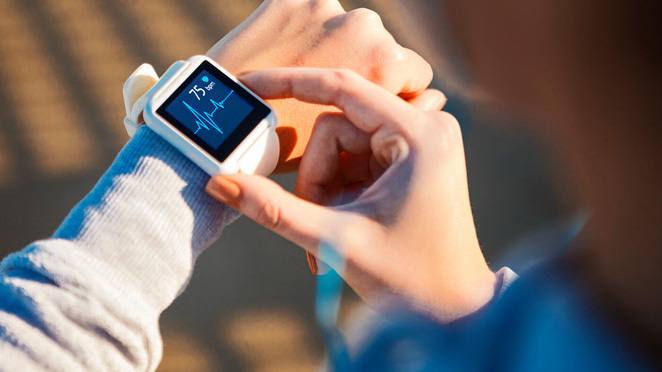Overview
Premature ventricular contractions (PVCs) are extra heartbeats that begin in one of the heart's two lower pumping chambers (ventricles). These extra beats disrupt the regular heart rhythm, sometimes causing a sensation of a fluttering or a skipped beat in the chest.
Premature ventricular contractions are a common type of irregular heartbeat (arrhythmia). premature ventricular contractions (PVCs) are also called:
- Premature ventricular complexes
- Ventricular premature beats
- Ventricular extrasystoles
Occasional premature ventricular contractions in people without heart disease usually aren't a concern and likely don't need treatment. You might need treatment if the premature ventricular contractions are very frequent or bothersome, or if you have an underlying heart condition.
Symptoms
Premature ventricular contractions often cause few or no symptoms. But the extra beats can cause unusual sensations in the chest, such as:
- Fluttering
- Pounding or jumping
- Skipped beats or missed beats
- Increased awareness of the heartbeat
When to see a doctor
If you feel fluttering, pounding or a sensation of skipped heartbeats in your chest, talk to your health care provider. A health care provider can determine if the sensations are due to a heart condition or other health concern. Similar signs and symptoms can be caused by many other conditions such as anxiety, low red blood cell count (anemia), overactive thyroid (hyperthyroidism) and infections.
From Mayo Clinic to your inbox
Causes
To understand the cause of premature ventricular contractions (PVCs), it might help to learn more about how the heart typically beats.
The heart is made of four chambers — two upper chambers (atria) and two lower chambers (ventricles).
The heart's rhythm is controlled by a natural pacemaker (the sinus node) in the right upper chamber (atrium). The sinus node sends electrical signals that typically start each heartbeat. These electrical signals move across the atria, causing the heart muscles to squeeze (contract) and pump blood into the ventricles.
Next, the signals arrive at a cluster of cells called the atrioventricular (AV) node, where they slow down. This slight delay allows the ventricles to fill with blood. When the electrical signals reach the ventricles, the chambers contract and pump blood to the lungs or to the rest of the body.
In a typical heart, this heart signaling process usually goes smoothly, resulting in a resting heart rate of 60 to 100 beats a minute.

Typical heartbeat
In a typical heart rhythm, a tiny cluster of cells at the sinus node sends out an electrical signal. The signal then travels through the atria to the atrioventricular (AV) node and into the ventricles, causing them to contract and pump blood.
PVCs are irregular contractions that start in the ventricles instead of the atria. The contractions usually beat sooner than the next expected heartbeat.
The cause of premature ventricular contractions isn't always clear. Certain things including heart diseases or changes in the body can make cells in the lower heart chambers electrically unstable. Heart disease or scarring may cause the heart's signals to be misrouted.
Premature ventricular contractions may be caused by:
- Certain medications, including decongestants and antihistamines
- Alcohol or drug misuse
- Stimulants such as caffeine or tobacco
- Increased levels of adrenaline in the body due to exercise or anxiety
- Injury to the heart muscle due to disease
Risk factors
Certain lifestyle choices and health conditions may make a person more likely to develop premature ventricular contractions (PVCs).
Risk factors for PVCs include:
- Caffeine
- Tobacco
- Alcohol
- Stimulants such as cocaine or methamphetamines
- Exercise — if you have certain types of PVCs
- Anxiety
- Heart attack
- Heart disease, including congenital heart disease, coronary artery disease, heart failure and a weakened heart muscle (cardiomyopathy)
Complications
Having frequent premature ventricular contractions (PVCs) or certain patterns of them might increase the risk of developing irregular heart rhythms (arrhythmias) or weakening of the heart muscle (cardiomyopathy).
Rarely, when accompanied by heart disease, frequent premature contractions can lead to chaotic, dangerous heart rhythms and possibly sudden cardiac death.

